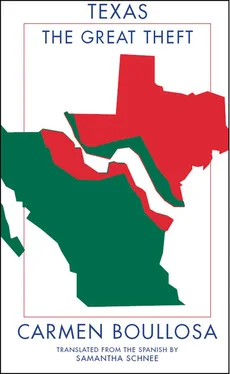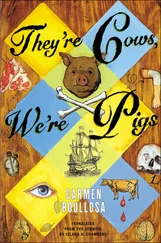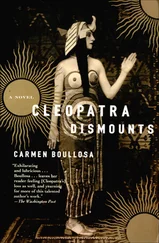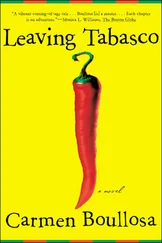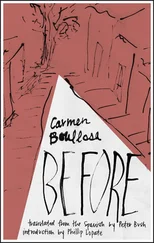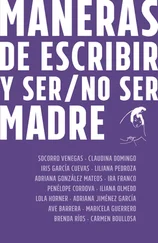“That’s why Nepomuceno’s men left without me. They tried to come break me out of there, but it didn’t work out.
“And the rest was fate, wasn’t it?”
In Lázaro’s head, in his last trace of consciousness, a violin plays, and he hears his own voice, singing what was perhaps his last song:
You can’t hear his hooves anymore,
clip clop,
poor dead little horse,
clip clop clip clop.

FIFTEEN DAYS LATER, after Nepomuceno’s camp disbands, in Matasánchez, Juliberto, a vaquero ’s son who learned the violin by listening to Lázaro play — he left Bruneville “to come live in Mexico, I can’t take the abuse over there anymore”—plays under the arches of the Café Central. He sings:
You can’t hear his hooves anymore…
A boy stands beside him, watching. He’s one of the kids from Nepomuceno’s camp — he carries Lázaro’s violin in one hand, he grabbed it because it was there for the taking; he’s come to watch Juliberto and learn how to play.
The Mexican federal authorities believe they’ve done the right thing. If they hadn’t taken him prisoner, Nepomuceno would have launched more attacks, destabilizing the region. Because Nepomuceno was determined to avenge Lázaro Rueda. And he would have published more proclamations — four, five, or six more — with the help of Jones, in both English and Spanish.
Nepomuceno’s imprisonment shakes the region more than Lázaro’s lynching (he was neither the first nor the last Mexican to meet that fate).
But not the whole region.
Turner (who spoke English with a Mexican accent and ate tortillas instead of bread) celebrated his eighty-fourth birthday at his country house in Galveston, as if nothing had happened. A sumptuous feast followed by an open-air dance, they put a thirteen-foot agave with gorgeous foliage in the center of the patio and adorned it with Japanese lanterns to illuminate it.
Juan de Racknitz, German captain of the Mexican army, founder of Little Germany, got himself seriously drunk while he listened to the musicians and watched the girls he had paid to dance.
Lawyer Stealman, who is deeply involved in the region, despite the fact he’s been in New York trying to get the false property titles for Padre Island completed, spends the day triumphant. He’s finally received an affirmative response from the governor on another topic that doesn’t concern us.
The Robins realize that their profits could grow if they change their line of work. They ply judges with bribes using the money from their heist on a San Antonio bank. Suddenly they are owners of hectares and hectares, yet they continue stealing livestock. They dispute with the rightful owners, accusing them of theft, and by using judges, lawyers, and witnesses — they were well-trained by King, who had taught them himself — they became wealthy without so much as dirtying their shoes. Surely that’s a better way to make a living.
Much later they became respectable. Instead of people calling them “The Robins” they become “The Robin Family”—Texan aristocracy — but the blood of thieves, not nobility, still runs in their veins.
Don Marcelino, in his search for specimens for his plant collection, has extended his territory, going so far as to use a cart to cover more ground. He enters the northernmost point of the Huasteca region by foot.
Old Arnoldo’s tug has run aground on a reef. The sea there is a transparent emerald green. And it’s there that the soul of the old captain who steered it for decades awakens. He’s never been happier: here the sea is really the sea, sunsets open the sky’s jewel-box, the seafoam white as heaven. This is eternity.

1Refined? New Yorkers? We couldn’t disagree more. We’re quoting from her diary verbatim, and this proves our faithfulness to her text. Refined! By whose standards?
THE END.
That’s where our story ends. But others continue:
Nepomuceno spends a tiresome, filthy spell imprisoned in Tlatelolco.
The Kids’ Brigade doesn’t break up, despite the absence of Nepomuceno and his camp; they learn to live along the banks of the river by stealing from ranches or wrangling stray livestock.
The gringos kill all of the Rodriguez brothers’ pigeons, but they don’t punish either Nicolaso or Catalino.
When Catherine Anne Henry’s novel is published in New York, the critics describe it as Shakespearian, pondering the depth of its psychological dramas and the universality of its characters. One writes that Catherine “is on par with George Sand and George Eliot.” The novel is a smashing success, everyone is talking about it.
La Desconocida leaves with Dan Print — or Dan Print with La Desconocida. They don’t cross through Indian Territory — they’re crazy in love but they’re not that crazy. They take a steamboat to Galveston and another headed to New York. En route, Dan Print finishes his story, “The Proclamations of a Great Man.” He delivers it to his editor, who hates it and requires him to make so many changes that (“Thanks to these New York expurgations and embellishments”) Nepomuceno morphs from a hero into a petty thief. (The article is finally entitled “The Robin Hood of the Frontier;” the editor is happy with the title, but the journalist can’t stand it; publication is a success; the Henrys and the Stealmans pay for it to be reprinted as a pamphlet which they give to all their family and friends for the following reasons: Catherine admires the journalist’s writing; Sarah appreciates its portrayal of Mexicans; the Stealmans admire and appreciate everything about it except the title, but that was easily fixed — in the reprint it becomes “The Red-Headed Bandit.”) Carlos the Cuban moves north, the Eagles no longer mean anything to him and the only thing he really cares about is his country’s independence.
La Desconocida and Dan Print get married, infuriating the journalist’s mother.
When Snotty figures out how to escape from La Plange (with some of the negatives of the photos of Nepomuceno) he joins the Kids’ Brigade, and a photographer is born, one who doesn’t earn a living off of weddings, funerals, and baptisms, but a top-notch photographer whose name we won’t utter here so as not to tarnish his reputation with his boring past.
Marisa, Nepomuceno’s daughter, doesn’t handle the loss of her father well — she loses her marbles.
Don Marcelino shows up again in Matasánchez lugging a trunk full of specimens, treasures from Huasteca for his plant collection.
Nepomuceno escapes from Tlatelolco to take part in the American Civil War. With the help of his organization, the steadfast Eagles, he aids the despised Confederate slave-holders, helping them sell their cotton and slip it past the Union Navy’s blockade (they have a plan in mind and need the money to execute it).
The Civil War heralds Bagdad’s moment of glory; its population reaches 15,000, as steamboats laden with contraband cotton leave for New Orleans, Havana, New York, Boston, Barcelona, Hamburg, Bremen, and Liverpool.
Nepomuceno, wealthy once more, organizes and equips an army and fights alongside the Yankees. The Eagles serve as crucial spies and guides in plotting against the Confederates, who lose the war.
After the war, Bagdad loses its splendor, as Confederate commerce is halted. Mexican governments try and fail to revive it by making the port a military bastion.
Stealman, King, and Kenedy (the cotton plantation owner), some other slave-holders, and two Comanche chiefs (whose names I can’t recall) are invited to live in Brazil by King Pedro. The Brazilian monarch offers them extensive land and credit to facilitate their moving to his kingdom, where they can own slaves without any restrictions whatsoever (in lieu of livestock, he promises them slaves, he’s interested in cultivating crops, not animals). King Pedro even sends a boat to transport them — he wants to found a slave-holding republic on Brazilian territory, to stimulate the economy. King refuses the Brazilian king’s offer (he’s interested only in livestock, not cotton or tobacco or any other crop, “If it don’t moo or neigh I don’t like it, not even beans ’n’ chickens”—although on the matter of chickens — and pork, which gets lumped in with chicken — it’s not strictly true). Stealman doesn’t accept the offer, either, because he already has one foot firmly planted in New York. Everyone else boards the boat, including the two Comanche chiefs and their tribes — they’re good at growing crops and they’re good with slaves, too. Mr. Blast, the freebooter, goes with them, embarking on yet another failed enterprise.
Читать дальше
